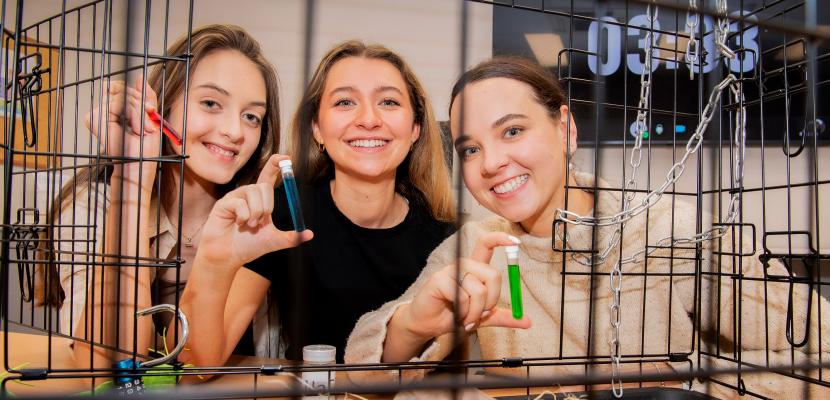
Dr Iris Lim is Assistant Professor of Biomedical Sciences at Bond University.
The last thing my students expected the week before exams was to be injected with a poisonous toxin, locked in a room, and given one hour to find the antidote. Hypothetically speaking of course!
As an Assistant Professor in Biomedical Sciences at Bond University and a self-professed escape room junkie, I’m passionate about combining neuroscience with gamification to create the ultimate educational experience.
The biomedical science degree can get quite stressful, so I like to create ways to help students de-stress and have fun, while developing communication and problem-solving skills.
As someone who shares a love of science with a love of gaming I’m currently exploring ways for the two to interconnect to make education more engaging.
By conducting the escape room the week before final exams, students are encouraged to apply their knowledge from the semester in a creative and collaborative way, which gives them confidence heading into the assessment period.
Our future health professionals need to be equipped with more than just theoretical and practical experience.
These so-called ‘soft’ skills are vital, and activities like escape rooms can help students build those, while making what can sometimes be dry or content-heavy topics more exciting.
It also gives the students some fun – these are tough degrees and they can get bogged down in the assessments. I see the escape room as a way of helping energise them in the lead up to those exams.
It’s not just students who are benefiting from educational escape rooms, academic staff have also been putting their smarts to the test.
I’ve run multiple sessions with academics and have collaborated with a colleague in the Business School to create a numerical themed room for his actuarial science students.
My passion for exploring gamification in education has been embraced by Bond University’s Gamification Community of Practice. This is a cross-faculty, multidisciplinary research initiative that aims to advance our understanding, proficiency and use of serious games and gamification in education to enhance learner engagement.
Currently, the group is investigating the use of these games and gamified contexts in classrooms at Bond University. I am leading a project on exploring what students across all faculties think about gamification within their subjects – particularly what they like and dislike.
It’s part of our plan to make education more engaging which ultimately maximises student enjoyment and inspires them to continue learning.